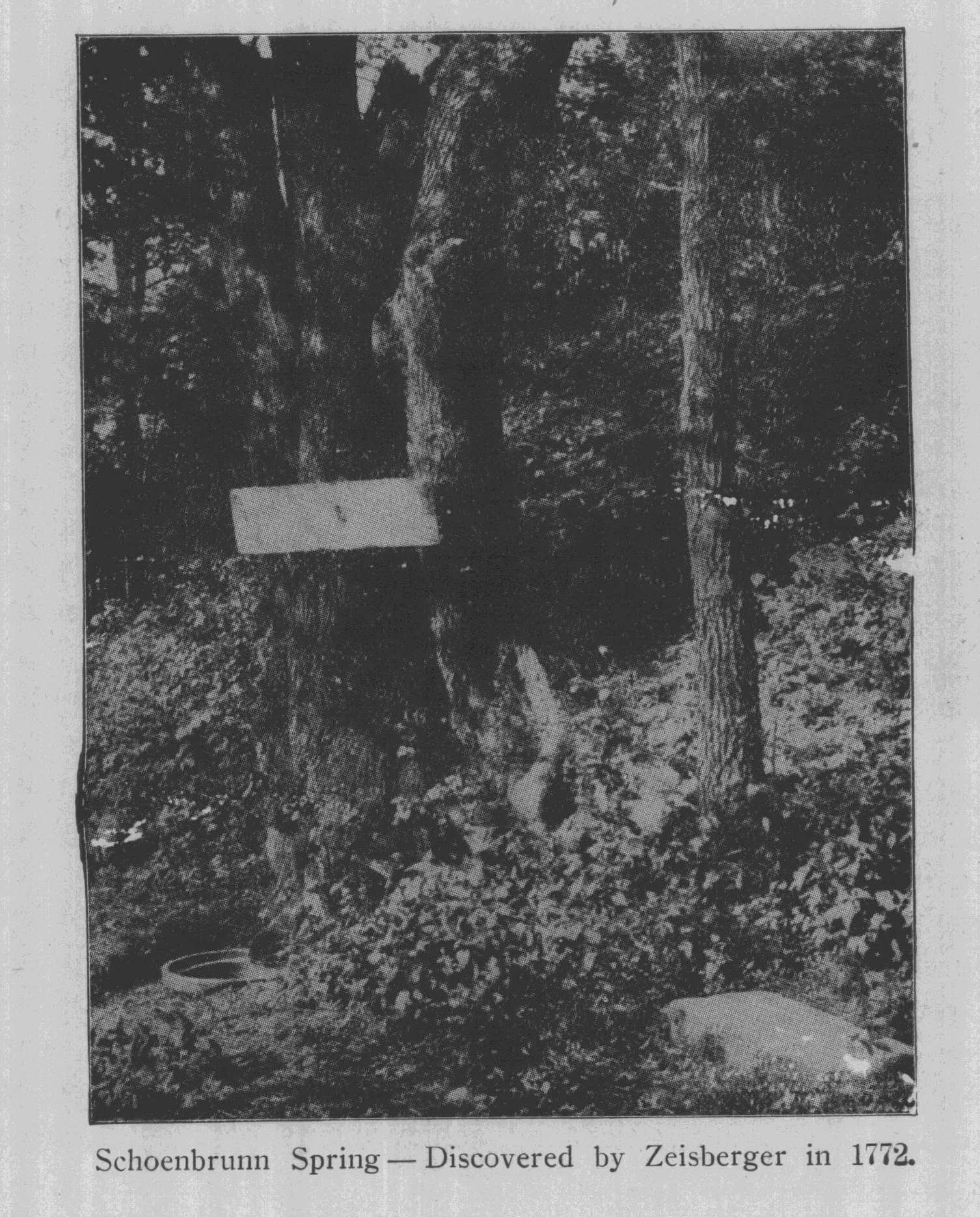Ohio History Journal
David Zeisberger Centennial. 179
Slumber on, and may Christians of
whatever creed
Bow their heads to the altered
condition,
And as years roll along with eternity
speed
Give thy tomb its deserved recognition.
Slumber on in the vale far away from thy
birth
Where pure beauty and plenty fail never,
Where thy victories were in the efforts
put forth
For the Race almost vanquished forever.
SITE OF LICHTENAU.
Regarding the location of Lichtenau,
founded by Rev. David
Zeisberger of the work of Heckewelder
and Zeisberger and the
first spelling book used in Ohio, Rev.
W. H. Rice, D. D., says the
following:
Lichten-Au is a German word, signifying
a Pasture or
Meadow of Light here the name is
significant of God's smile upon
the green pasture lands. It was the name
given by Rev. David
Zeisberger to the Christian village
settlement which he founded
in April, 1776, on the eastern bank of
the Muskingum river, two
and a half miles below Goshochkunk
(Coshocton) in accordance
with the urgent wishes of the chief of
the Delaware Indian Na-
tion. Chief Netawatwes whose capital was
Goshochkunk the
Indian name which has survived in
"Coshocton." Netawatwes
selected the site in such proximity to
his capital because, "If the
brethren will live near me, I will be
strong. They will make me
strong against the disobedient."
The site is a broad level of many acres
stretching to the foot
hills with a slight rise. The river bank
has an arc-shaped out-
line and was covered with maples and
sycamores. There was a
rich soil, and an abundance of materials
for building.
The pre-historic relics tell of its
having been occupied once
before as a village site. There is a
circle of five acres and a
mound. The former is quite near this
site of Lichtenau and the
latter three-quarters of a mile down the
river.
Forty-five years ago the site of
Lichtenau was identified as
stretching across the long lane that
runs from the river to the
foot hills, separating the farms then
owned by Mr. Samuel Moore
and Mr. Samuel Foraker, in Tuscarawas
township, in Coshocton
